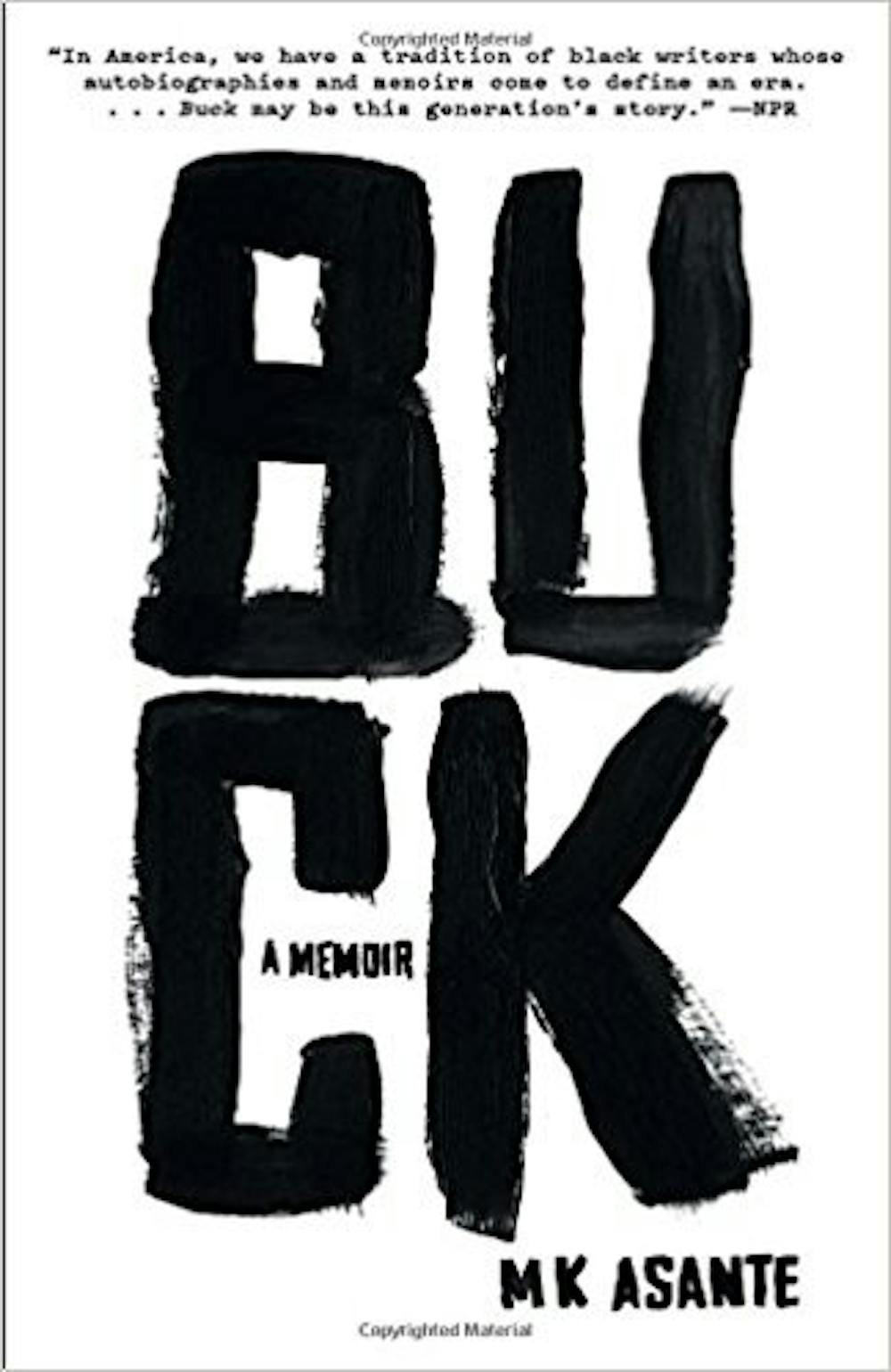Literatures and cultures librarian Katrina Spencer is liaison to the Anderson Freeman Center, the Arabic department, the French department, the Gender Sexuality & Feminist Studies (GSFS Program), the Language Schools, Linguistics and the Spanish & Portuguese departments. These affiliations are reflected in her reading choices. “While I am a very slow reader, I’m a very critical reader,” she says.
Pages: 252
The What:
Buck is a young black man’s tale about growing up in 1990s Philadelphia with a doggedly Afrocentric father and a mother who suffers from mental illness. Between his father’s absenteeism and his mother’s psychiatric needs, Asante struggles to access the guidance and stability to thrive as a teenager en route to manhood. The work is laced with hip-hop lyrics and visits the many dangers that a number of African American boys, both expertly and falteringly, dodge on the way to becoming self-actualizing members of society.
The Why:
I met the author of this text more than 10 years ago in Los Angeles when he was working on a film degree at UCLA. I follow his career periodically and want to critically review his work for the Black Caucus of the American Library Association’s (BCALA) newsletter, “BCALA News.” This work, like Junot Díaz’s “This Is How You Lose Her,” provokes an examination of black masculinity — which is of regular interest to me and many others, particularly in light of rapper Jay-Z’s “4:44” release — and how it can be shaped by conditions and cultures found within many urban landscapes throughout the U.S.
Rating: 3/5 cardigans
The story is a unique, important and inspirational one, often left untold and/or lost to the streets. Many young black men growing up in similar environments need this narrative to know that their tales do not end at age 15. However, while the interpositions of hip-hop lyrics used to reflect the unity between the popular musical genre and the protagonist’s life ring genuine, at times, instead of serving the novel and its movement, they distract from it. Moreover, the author may have benefited from putting a greater number of years and a few additional measures of perspective between himself and his memoir. The resolutions of his problems seem trite, as those seen in afterschool television specials — the tidy deus ex machina a bit too convenient to feel real.




